Chickpeas Can Be One of the Most Versatile Foods in Your Home — Here's How to Use Them
Chickpeas can be anything you want them to be if you are willing to play around in your kitchen.
Updated May 9 2024, 10:48 a.m. ET
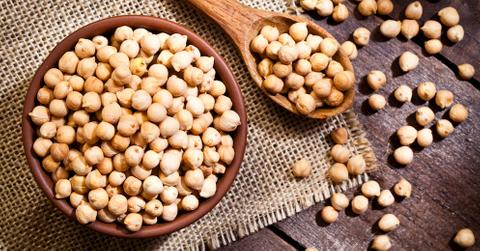
Trying new foods is an eye-opening experience for many people, while others are more apprehensive about it. But some foods find their way onto your plate without you even realizing it. Chickpeas, for example, can be used in all kinds of dishes and even baked goods. But have you ever had them on their own?
Because chickpeas, sometimes known as garbanzo beans, are versatile and packed with nutrients, they are a great option for vegetarians and vegans. But what do chickpeas taste like? The answer may depend on who you ask. In many dishes, you may not taste them at all!
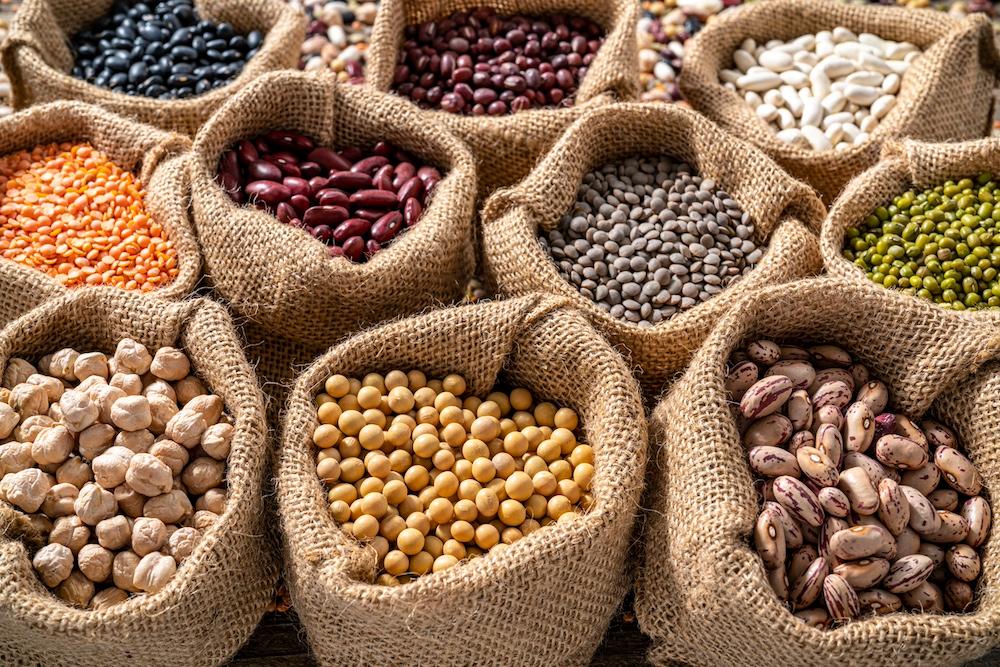
What do chickpeas taste like?
According to Casa de Santé, there is a difference in taste between raw and cooked chickpeas. Raw chickpeas have a nutty taste that many are familiar with.
However, the publication says that cooked chickpeas have a smooth and creamy taste that's slightly sweet. There's a "buttery" texture that tastes amazing in all kinds of dishes.
If you ask Food with Feeling, chickpeas have a very mild taste, but that's what makes them so versatile. Compared to other legumes, chickpeas have a gritter and meatier texture.
Additionally, chickpeas have a skin you can peel off. Although some people prefer to eat the skin, Food with Feeling states there isn't too much of a difference either way.
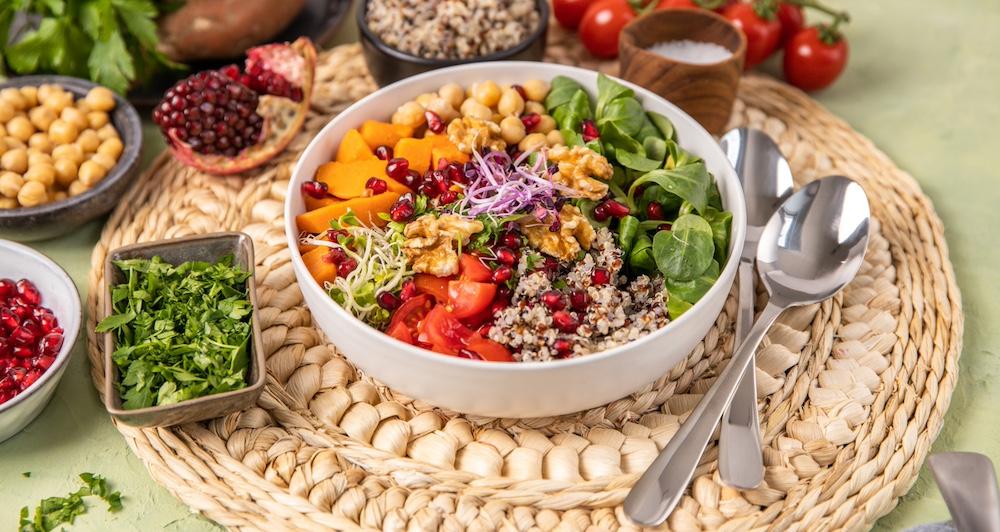
What are some of the health benefits of eating chickpeas?
If you like chickpeas, you're in luck. They are packed with all kinds of nutritional benefits and are especially great if you're living a plant-based lifestyle. According to Healthline, 1 cup contains many benefits including:
- 12.5 grams of fiber
- 14.5 grams of protein
- 26 percent of the Daily Value of Iron
- 64 percent of the Daily Value of Copper
- Vitamins B6 and B9
Additionally, Health mentions that chickpeas can have positive effects throughout the body. They can help control blood sugar and contribute to your heart's health. Since they have so much fiber, they can be good for your gut if you don't eat too much at once. Having too much fiber in one sitting can upset your stomach.
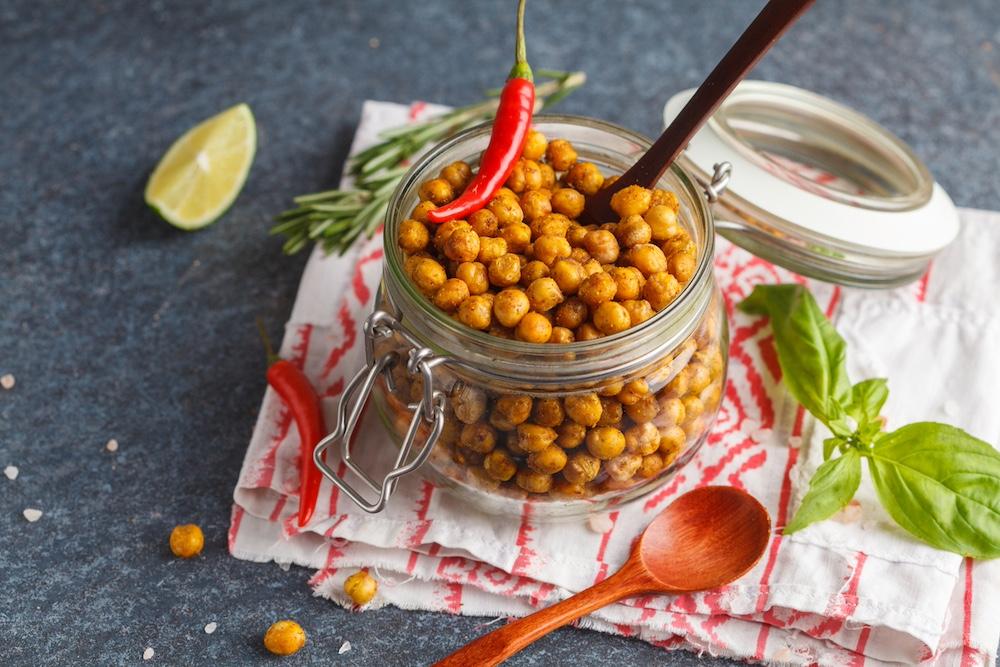
Chickpeas are also good for the environment. According to NPR, they don't require as much water as other plants to cultivate. Chickpeas are part of a subcategory of legumes called pulses, which also include lentils and other beans, and all kinds of pulses are good for the soil they are planted in. This lowers the amount of chemical fertilizers needed in the growing process.
What is aquafaba and how is it used?
According to Food & Wine, aquafaba is the liquid left over after cooking legumes, including chickpeas. You can make your own this way, but you can also get it at the grocery store when you buy canned legumes. However, the publication's Food Editor, Kelsey Youngman, states that the store-bought version is better since it's starchier and easier to obtain as long as you're willing to spend the money.
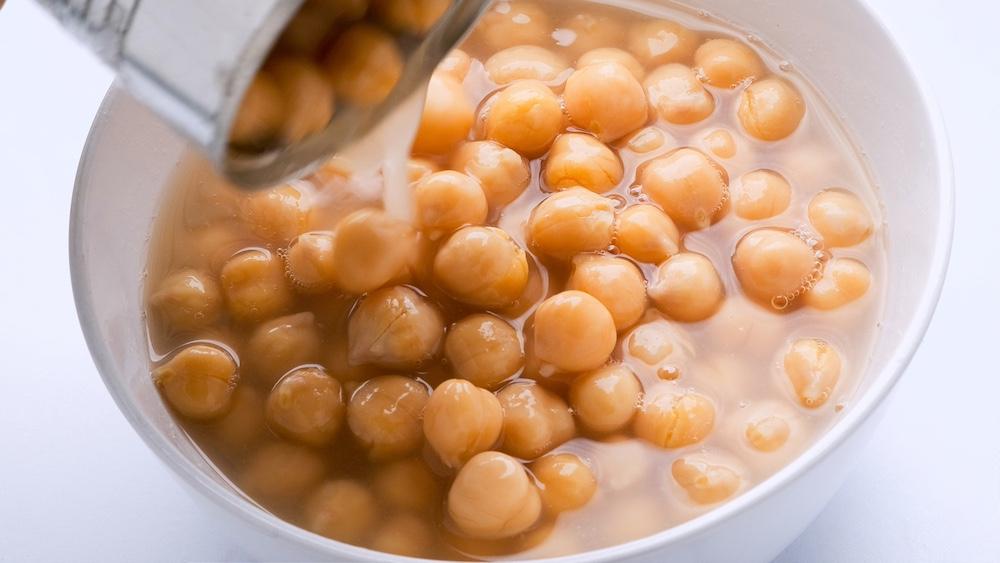
For many, aquafaba is used in cooking. Particularly, chickpea aquafaba is used as an egg substitute for those who are vegan or vegetarian. Youngman likes to use this liquid in baked goods and other meals, so you don't have to waste any of it. If you have any left over, you can store them in your fridge in an airtight container, where it can last about a week, or you can put it in the freezer for up to a month.